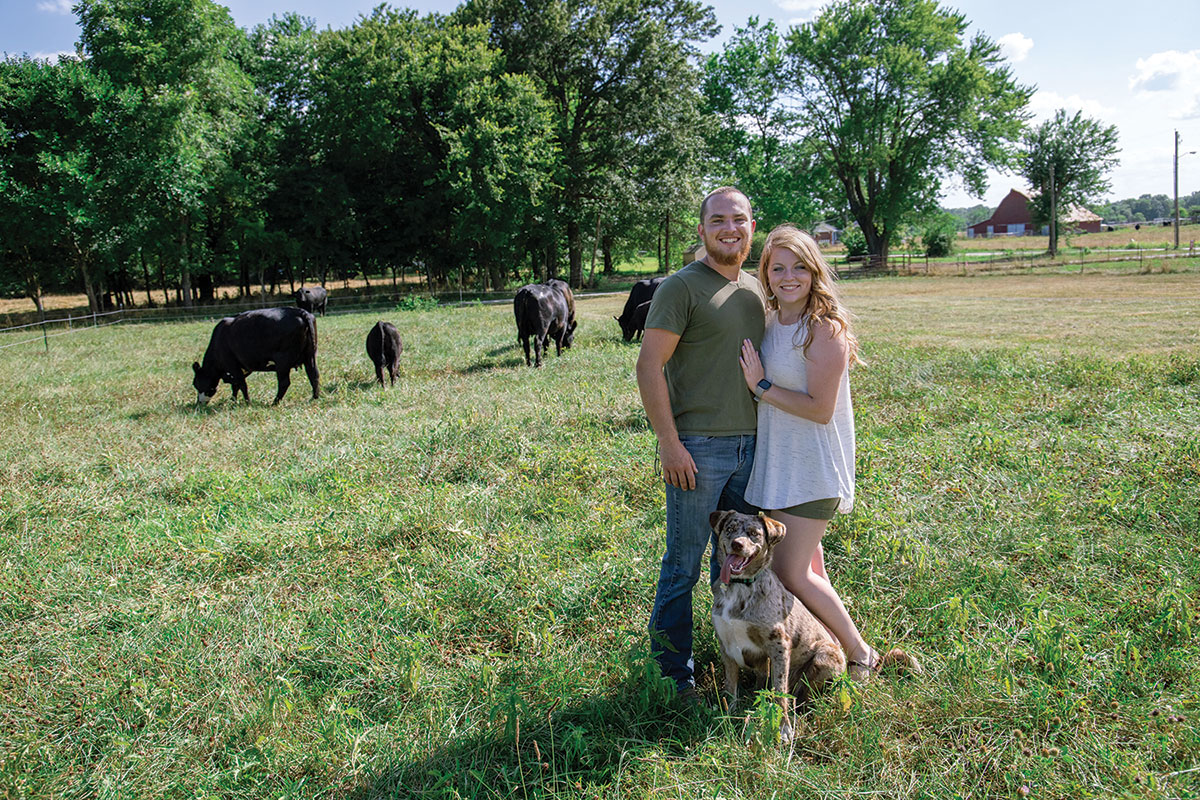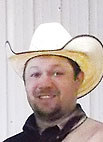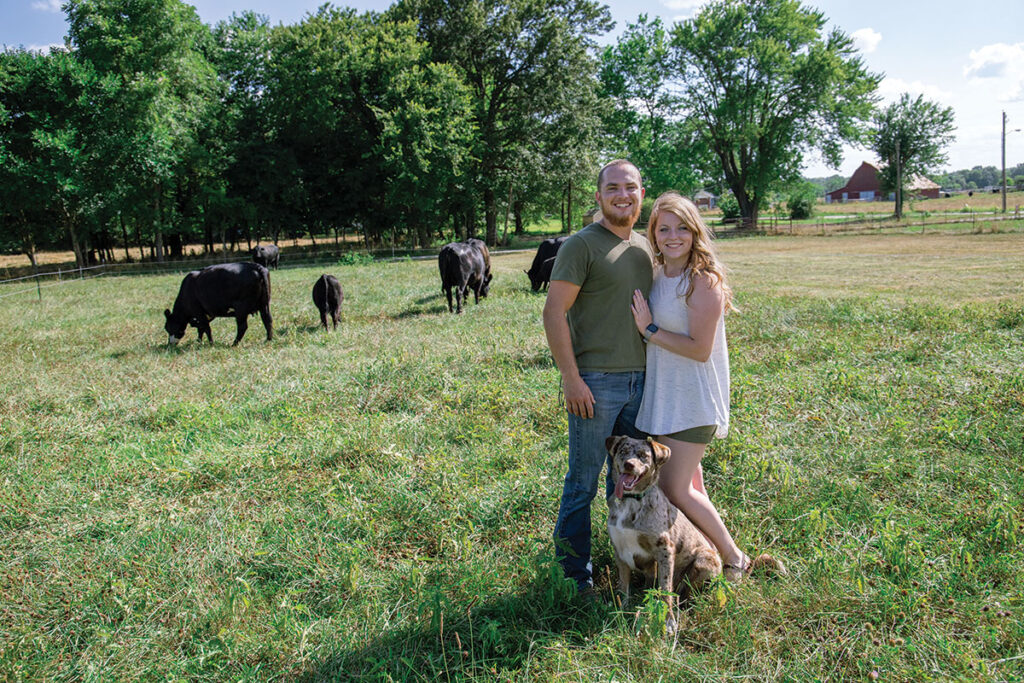
Hoof and Harvest Farms specializes in pasture-based meat animals and poultry
Hoof and Harvest Farms, located near Rogersville, Mo., in Greene County, is owned and operated by Caleb O’Neal and his wife Shalyn. They moved to this location in June 2020, but had been farming for a while before then.
Although Caleb grew up in Arkansas, his grandfather had a big influence on his life.
“My grandpa is a cattle farmer in Northern Missouri. So farming is in my family,” Caleb explained. “My parents did not farm, but all through my young life, and even into high school and college, I had my own operations going in Arkansas. So I’ve always had a love for animal husbandry; taking care of critters.”
Caleb majored in sciences in college. He is getting his master’s degree in science.
Using about 25 acres, with access to 35 acres, Caleb raises cattle and hogs. He also has dairy goats and chickens.
He started with five Hereford hogs in October 2019.
“It was the first thing we did. We just decided we were going to do it and we ended up getting a few pigs,” Caleb said.
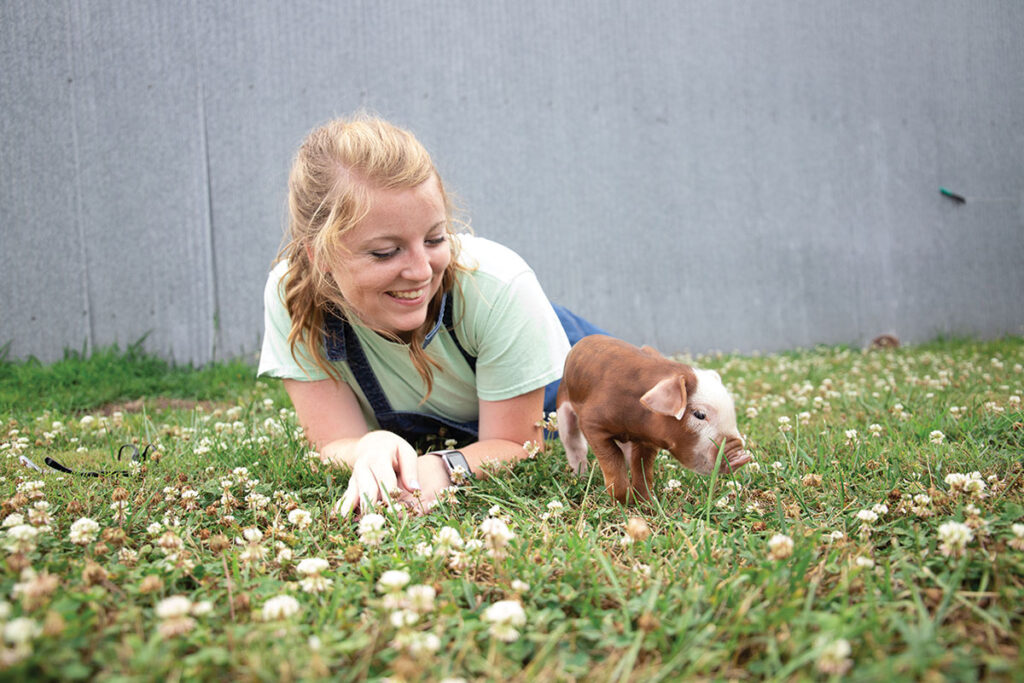
“It’s a heritage breed. They kind of look like your typical Hereford cow, with the red and white face,” he said.
How many hogs they have depends on the time of year.
“We raise hogs to butcher and feed out to folks who buy them by the half or by the whole,” Caleb explained. “Right now we’ve got our lowest inventory. But we’ve got 12 right now. In the spring and summer, when we’re feeding out feeders, we’ll have around 30 or so.”
Caleb also has a grass-fed beef operation. He has five cows and five heifers that will be bred next fall. They are raising their black Angus beef on only grass and then selling direct to consumers; a quarter, half or full beef.
“A grass-fed beef takes a little longer to feed out than your typical grain-fed beef. So they’ll be about 2 years old whenever they’re butchered,” Caleb explained. He wants them to weigh between 1,000 and 1,300 pounds.
On the pigs, he likes them to weigh about 275 pounds when butchered.
Caleb has registered Nubian dairy goats he milks by hand twice a day.
“That operation is going to be expanding next year as well,” he said. “Dairy goats were probably my first farming adventure.”
It started when he was 13 or 14 years old. His parents weren’t farmers, but had several acres.
“I got a couple of dairy goats and started milking them. People would just go crazy over the milk. The reason being that lactose-intolerant people can digest dairy goat milk. It has a different chemical structure,” he explained.
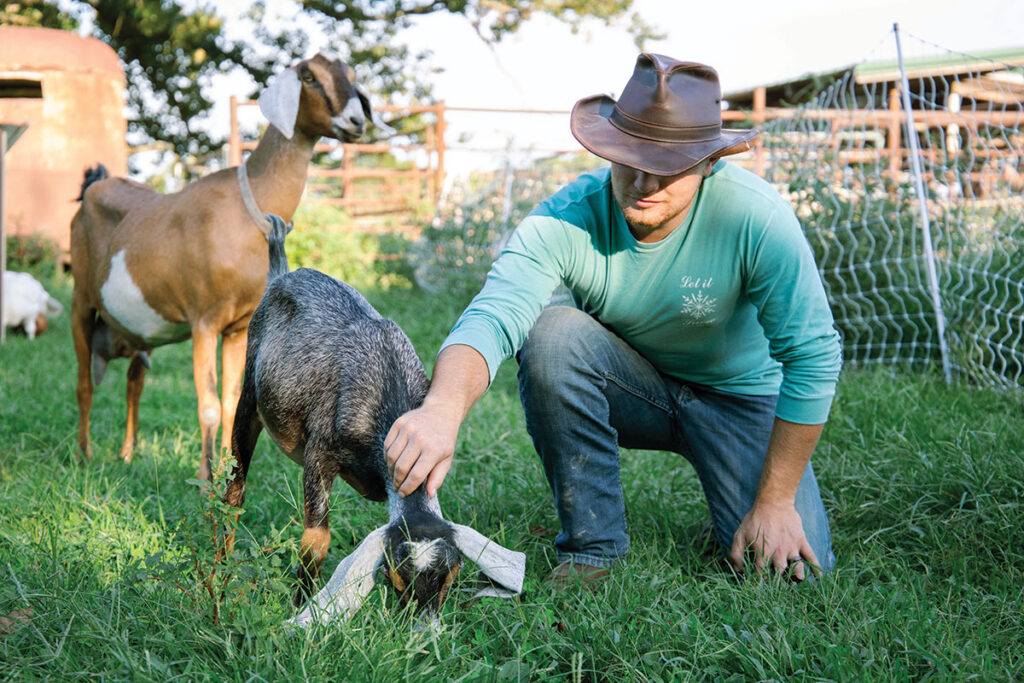
Caleb also has 50 chickens, but plans to increase the flock in the spring. His Cinnamon Queen chickens are egg layers. He plans to raise meat chickens in the spring.
Caleb will not choose his favorite animal, but does say the pigs are the most work.
“They definitely require the most work and the most time. But they’re also really fun and for what we’re trying to do with our land, they’re really helpful,” he stated. “We use them in areas that are really scrubby, or really nasty; that have weeds or certain plant species that we don’t want there. We use the pigs like roto tillers. We have them work that ground and then we overseed it.”
Last year Caleb sold vegetables and fruits, and he is planning a big garden again this year, with possible expansion plans.
“Really important to what we do and what we believe is that all of our animals are on a pasture-based system,” Caleb said. “We really strive to honor the ecology of the animals and the land at the same time. We honor the ecology of the animals with everything that we’re doing.”

